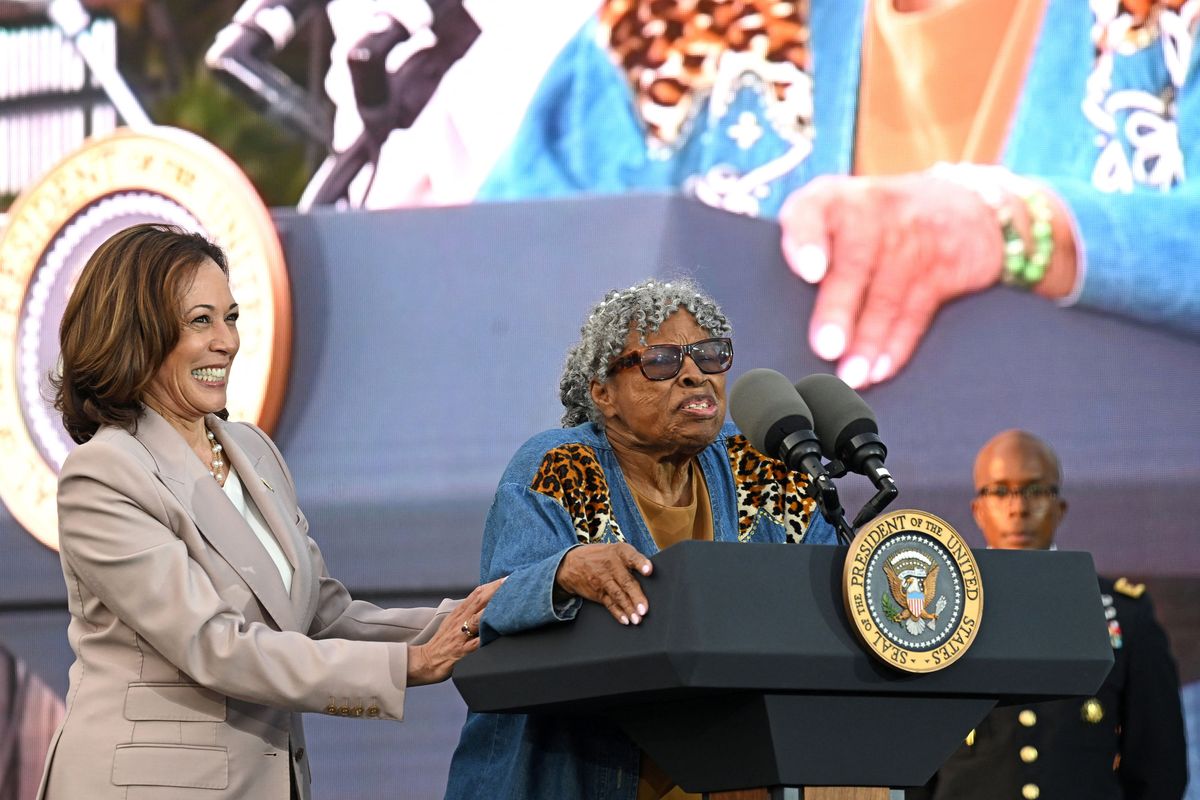Elwood Watson: Juneteenth is an important acknowledgement, but it should be just a spark of the conversation

Each week, The Spokesman-Review examines one question from the Naturalization Test immigrants must pass to become United States citizens.
Today’s question: The Civil War had many important events. Name one.
Here we are. Another year, another June, and the nation is about to celebrate another Juneteenth holiday. On June 17, 2021, President Joe Biden signed the bill into law, making Juneteenth the 11th holiday recognized by the federal government. At a White House ceremony, Biden singled out Opal Lee, an activist who at the age of 89 walked from her home in Fort Worth, Texas, to Washington, D.C., and called her “a grandmother of the movement to make Juneteenth a federal holiday.”
On June 19, 1865, about two months after Confederate general Robert E. Lee surrendered at Appomattox, Virginia, Union general Gordon Granger arrived in Galveston, Texas, to inform enslaved African Americans of their freedom and that the Civil War had ended. Granger’s announcement put into effect the Emancipation Proclamation, which had been issued nearly 2½ years earlier, on Jan. 1, 1863, by President Abraham Lincoln.
As is the case with Black History Month and other events associated with people of African descent, we are rightly introduced to and reminded of the innumerable contributions Black people have made to this nation. Corporations make bold and brazen acknowledgments, various institutions and churches salute Black history, sponsor dinners representing a culinary smorgasbord undeniably inspired by recipes that originated in the African diaspora. Such is the case with Juneteenth.
To be sure, such broad acknowledgment at all is commendable. Black people have a complex and vibrant history vastly distinct from other ethnic groups due to the religious, economic, social, psychological and educational experiences that have been visited and inflicted upon us.
By exploring and acknowledging Black history, the nation is paying homage to a group of men and women that is strong, resilient, innovative, forgiving (in some cases, arguably too forgiving) and have contributed immensely to the vitality and success of the United States – a nation where some people never intended for us to obtain full citizenship or be fully included within the panorama of American culture.
Truth be told, racism has always been a part of this nation. It is deeply ingrained in the fabric of our culture and is as American as apple pie. What we have witnessed over the past several years is blatant, undisguised bigotry – the type that many white people had to keep disguised and leashed since the 1950s or early 1960s – now being allowed to unapologetically permeate various sectors of our society, in many cases without consequences.
Anyone who has a pulse and is socially and culturally woke is astute to the current challenges facing Black Americans. We have brazen right-wing politicians who routinely stoke the flames of racial and cultural animosity and division. The time is ripe for a reinforcement of Black excellence to combat such racial resistance.
Since the time of this nation’s inception, Black Americans have had to wage a historically long battle, fighting to obtain rights that were supposed to be guaranteed by our Constitution – rights most other groups have taken for granted. The mountains and minefields that our ancestors had to face head on and triumph over are a testament to their impervious strength and spirit.
We are enduring similar battles today in the 21st century.
Being Black in America often means waging an ongoing battle. It means dealing with a history and people who have been defined by blood, sweat, tears, pain, occasional dashed dreams, setbacks and periodic victories.
While Juneteenth is an event that deserves to be part of the American holiday landscape, the fact is that a once-per-year celebration of a holiday aligned with the Black experience is not sufficient to compensate for the many injustices that routinely affect many Black communities in our nation.
The political, social, economic and cultural dilemmas facing Black America are problems that are endemic and deserve full and undivided attention.
Elwood Watson, Ph.D., is a professor of History, Black studies, and gender and sexuality studies at East Tennessee State University. He also is a syndicated columnist.